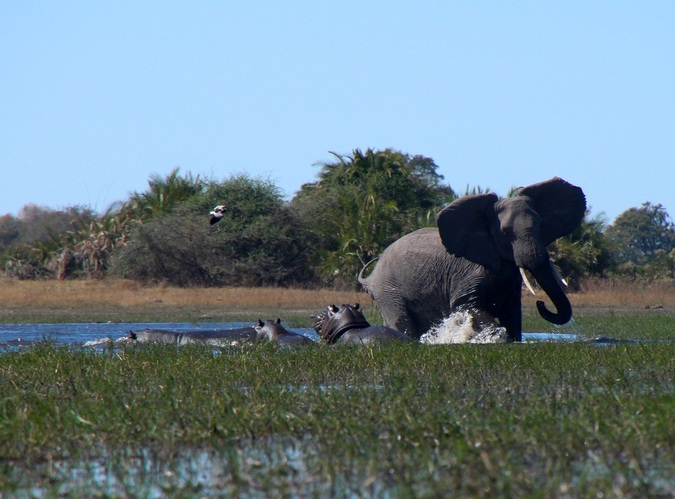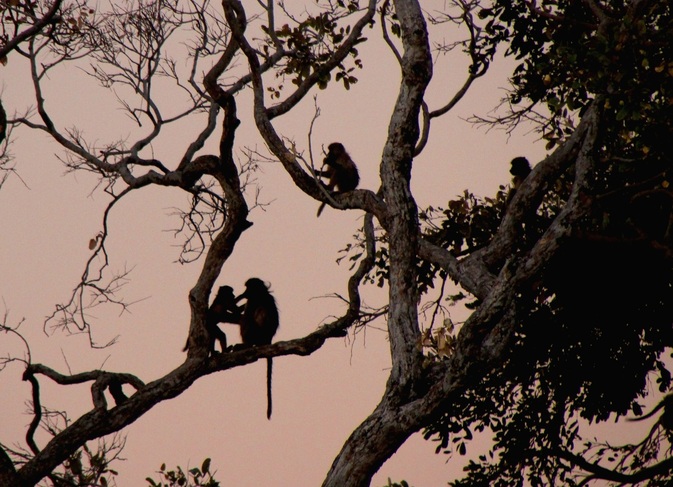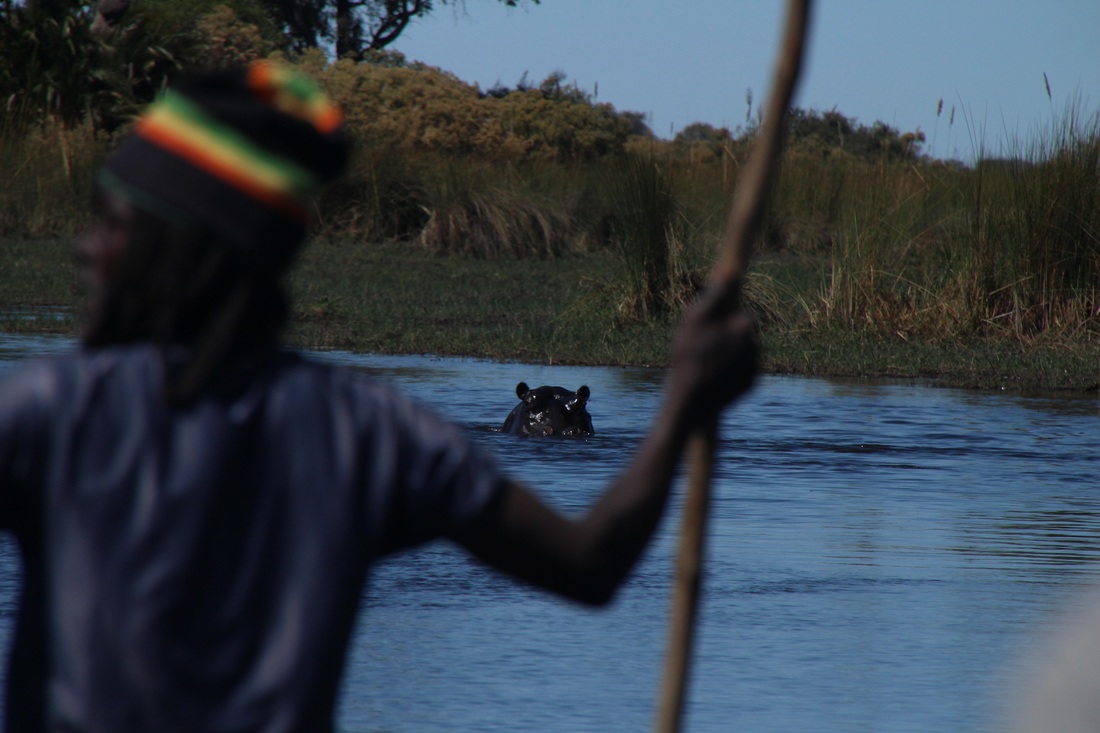Wilderness heightens our senses. For a moment, imagine the feeling of mud between your toes, or sharp grasses scraping your legs. The heat of the sun beating on your back, sapping your energy.
After a few days living outside, your hearing and eyesight sharpen, and pain and hunger become more real, even though both can be dulled by necessity. Feeling this way connects us with something deep within, with our ancestry, and our instincts.
As Gregg says in an entry for National Geographic’s Okavango blog, “I feel like I’ve poled 10,000 years back in time.”
In the following audio diary, he describes arriving in Mombo, and the wash of emotions he has after their toil hauling their gear into this majestic, remote place, teeming with wildlife:
After a few days living outside, your hearing and eyesight sharpen, and pain and hunger become more real, even though both can be dulled by necessity. Feeling this way connects us with something deep within, with our ancestry, and our instincts.
As Gregg says in an entry for National Geographic’s Okavango blog, “I feel like I’ve poled 10,000 years back in time.”
In the following audio diary, he describes arriving in Mombo, and the wash of emotions he has after their toil hauling their gear into this majestic, remote place, teeming with wildlife:
In the Nat Geo blog, he also described a clash between two of the largest mammals on Earth:
“This morning, after barely negotiating the second of several hippo pods we encountered throughout the day, we watched more than 40 elephants cross the river in front of us. Two trailing behind also had to back down to the cantankerous hippos.”
“This morning, after barely negotiating the second of several hippo pods we encountered throughout the day, we watched more than 40 elephants cross the river in front of us. Two trailing behind also had to back down to the cantankerous hippos.”
“Constantly the sounds of hippos, birds and elephants bellowing in the distance interrupt our conversations,” Gregg wrote.
That day the expedition team also saw baboons, vervet monkeys, zebras, lechwe, kudu, mongoose, warthogs, impala, monitor lizards, giraffe, hippos, elephants, hyenas, otter, crocodile, eagles, herons, egrets, storks and jacana.
That day the expedition team also saw baboons, vervet monkeys, zebras, lechwe, kudu, mongoose, warthogs, impala, monitor lizards, giraffe, hippos, elephants, hyenas, otter, crocodile, eagles, herons, egrets, storks and jacana.
It’s clear the Okavango Delta and this expedition have made a mark on Gregg. Such a window back in time is a rare and powerful motivator, and it’s easy to imagine Gregg’s eagerness to utilize adventure science volunteers to help bolster the UNESCO protections there. At ASC, we’re looking forward to hearing more about it upon his return.
In the meantime, let’s hope he keeps those senses sharp with so many hippos around. Here’s Gregg hard at it, dragging his mokoro through the mud:
In the meantime, let’s hope he keeps those senses sharp with so many hippos around. Here’s Gregg hard at it, dragging his mokoro through the mud:
-Emily Wolfe
Learn more about this expedition, and follow the team at intotheokavango.org, at our Facebook, Twitter and Instagram feeds, and via the hashtag #Okavango14.



